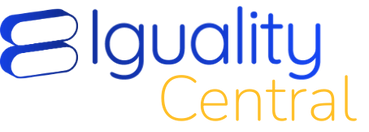Gender Balance in Leadership
We are committed to achieving and maintaining gender balance in our leadership structures. To support this goal:
- Our Board of Directors upholds a 50/50 gender balance, ensuring equitable decision-making power between men and women.
- We will monitor gender balance annually and include a section in our annual report detailing our progress and any steps taken to address imbalances.
Support for Women's Health
To support female staff and volunteers, we will:
- Provide essential female health products, such as sanitary products, in all our facilities to ensure access and comfort.
- Offer a paid day off for staff experiencing severe menstrual discomfort, recognising the impact it can have on their well-being and productivity.
- Provide one additional month of paid parental leave beyond the legal requirements for all parents, supporting families during the critical early stages of parenthood. This policy applies equally to all parents, also benefiting mothers whose partners are Iguality team members, as this creates a more balanced division of caregiving responsibilities. By offering equal leave to both parents, the policy helps deconstruct the notion that only mothers need time off for caregiving, promoting a more balanced approach to parental responsibilities.
LGBTQ+ Inclusion
We are dedicated to fostering an inclusive environment for LGBTQ+ individuals. To achieve this:
- Ensure that all organisational policies, practices, and services are inclusive and respectful of diverse gender identities and sexual orientations.
- Provide training for all staff and volunteers on LGBTQ+ issues, including sensitivity training and awareness of LGBTQ+ challenges.
- Develop and implement specific policies to support LGBTQ+ individuals, such as gender-neutral bathrooms and options for gender-neutral titles and pronouns.
- Create support networks and resources for LGBTQ+ staff and volunteers, including access to counselling and peer support groups.
- Regularly review and update our LGBTQ+ inclusion practices to reflect the latest best practices and feedback from the LGBTQ+ community.
Intersectional Approach
Recognising that gender equality and LGBTQ+ inclusion intersect with other aspects of identity, we will:
- Take an intersectional approach to our DEI initiatives, acknowledging and addressing the complex and varied experiences of individuals at the crossroads of different identities (e.g., race, disability, socioeconomic status).
- Prioritise the needs of the people we serve who face double or triple discrimination due to factors such as ethnicity, religion, gender, and socioeconomic status, among others. This ensures that our intersectional approach is not only theoretical but also directly benefits those most affected by multiple forms of marginalisation.
- Provide training for all staff and volunteers on intersectionality to better understand and address the diverse needs of our community members.
